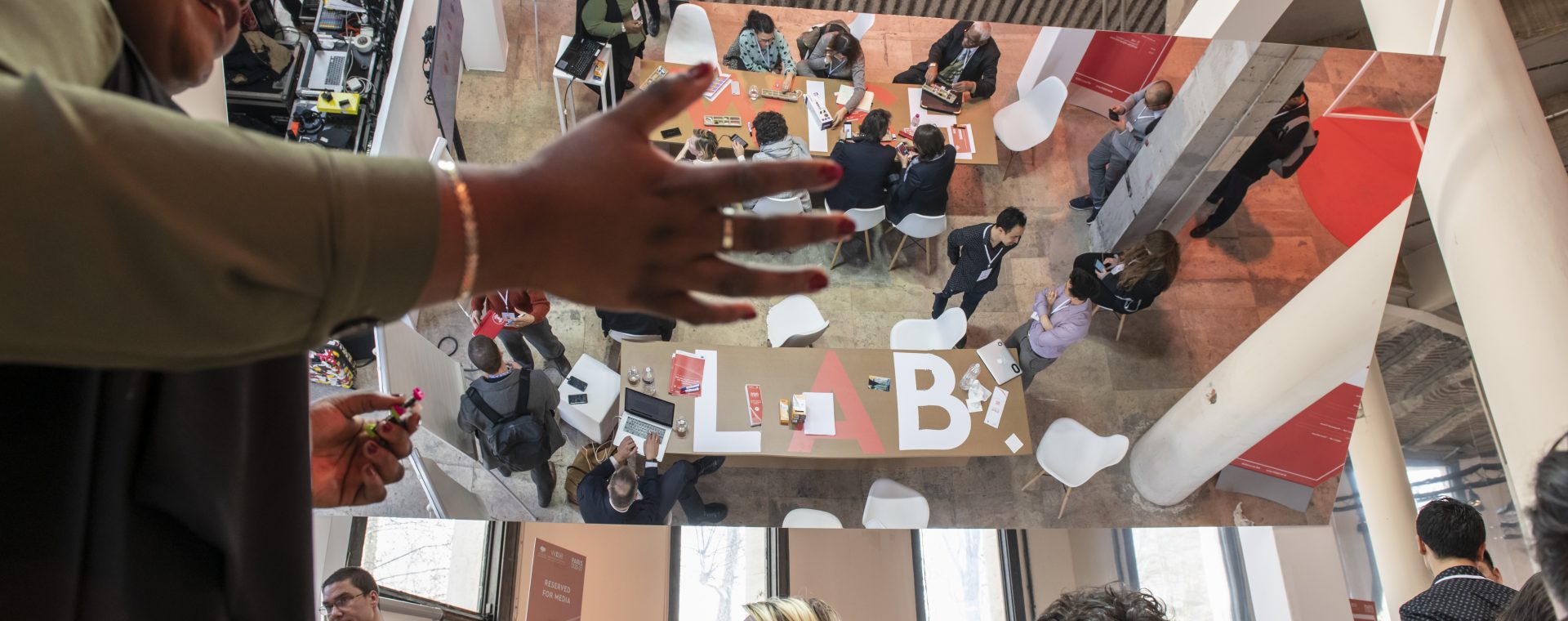
With digitization, increased globalization, and an ageing population, the world of work is invariably changing. The extent to which individuals, firms and economies can harness the benefits of these changes critically depends on the readiness of adult learning systems to prepare people with relevant skills[1].
Our last episode featured three guest speakers we met in WISE@Paris, where they shared their thoughts on the future of work and employment. Our guest speakers stressed how adaptability and agility were paramount to maintaining a successful future career.
“We estimate that there will be around 1 billion people who will need to be reskilled on digital skills in the next 12 years.” – Pierre Dubuc
Episode 31 continues where we left off and brings three new faces to the spotlight: Marion Voillot, Nicolas Sadirac, and Karim Sy.
Marion, a PhD student at the Center of Research and Interdisciplinarity in Paris (CRI) and co-founder of Lab Premiers Cris, recognizes the risks of an AI-powered future, but also envisions tech as a powerful tool for human benefit if used correctly.
“It’s not a matter of with or without technology, it means that technology is all around us. It means how we can do better WITH technology. It means we can have a better relationship with our interaction with technology by including the body.”
Marion is a designer and also specializes in developing early childhood pedagogies that are based on incorporating technology. Her work ‘M2’ placed the body at the heart of leveraging digital technology, exploring new tools and pedagogical instruments to change the paradigm for education.
“I would like to create a real relationship between design and education because I believe if we work together in a collaborative way we can create new pedagogies and that means that design, science, and education can be linked together.”
“We are developing two scenarios at the moment. One is to use a smartphone to record gestures and the gestures are translated by sound. So that means that we can create stories for children and they can use their bodies, creating new ways in imagining stories.”
Nicolas Sadirac, former head of non-profit coding school ‘42‘, recently co-founded ‘Zone 01’ which aims to train more than one million creative coders in Africa in the next 15 years.
“The idea of 42 is totally non-profit and based on charity, but I don’t think we can solve a wider problem with charity, so we need a process where we create value and this value is used to open more schools. It’s just like a basic football club: you find talent, you train them, and you share value.”
As Marion highlighted co-creational learning through textile projects, 42 and Zone 01 are projects which are built upon the foundation of collaborative learning paradigms. In the era of AI, Nicolas strongly believes human beings must pursue more creative outlets.
“I think we should totally remove the transfer of knowledge. Maybe not totally remove it but because right now we are focusing 90% of a child’s energy on making the memory work, and that’s exactly what a computer does. There needs to be much more focus on co-creativity.
The main problem is that we are in a society that mainly values tradition. And while that has been successful for a very long time, it will be the total opposite in the future.”
When asked about the relevance of traditional education, Nicolas had this to say:
“I think it’s more than irrelevant. I think it’s not useful. Something that is always difficult to understand for most people is that knowledge is not neutral. I see a lot of parents saying ‘okay my kid is learning this, at worst they won’t use it’. It’s not true. At worst, this child won’t do something else because of that.
There is no skill such as memory in which you can be better than a computer. You can never be as deductive as a good AI program, so you have to be human.
The world we are targeting looks more like what we do in a video game. In 10 years, more and more people will be co-creative like in a video game.”
A recent study conducted by Innovation Leader highlights how 61% of top companies that were surveyed regularly group up with different sectors of the workforce in an attempt to brainstorm innovation. Some even go as far as throwing customers into the mix. As Karim puts it, it could be imperative for us to fully embrace co-creation for the future.
“Our leaders are facing an issue that nobody on earth has confronted before. So nobody has a solution. We need to invent a new solution. We need to bring different people around the table from different expertise to find a solution together.”
Karim Sy is the founder of Jokkolabs, a non-profit organization which aims to bolster entrepreneurship and innovation in Africa through the organization of civil engagement platforms and supporting diverse communities.
“The value is clearly collaboration and co-creation. Actually, the way we are learning now is totally different because we are more in competition and we are not sharing.”
“We become richer by exchanging together. The Chinese say ‘you give me an idea and I’ll give you an idea, that makes two ideas.” We are not losing our knowledge by sharing it to another.”
To sum it up: collaboration, co-creation, and co-creativity are the 3 C’s that are perceived as the future of work. On a final note, as an entrepreneur, Karim also underscores disruption as the vehicle for these ideas to become widespread.
“We have seen it with mobile phones. We have seen it with mobile linking, we have seen that it can be disruptive and when we think disruptively we can find totally different solutions that we never thought about before.”


